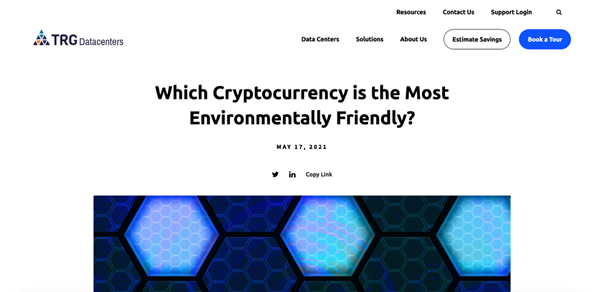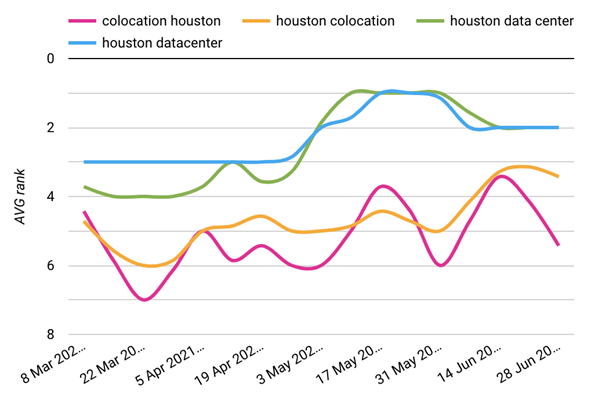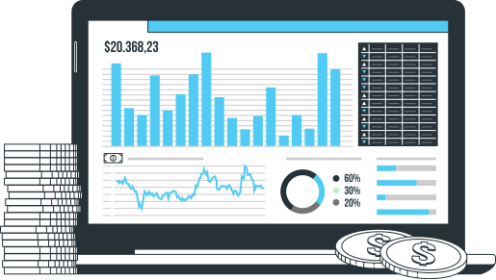Digital public relations (DPR) is a relatively new concept in the world of digital marketing. Whilst digital marketing was first pioneered in the 1990’s, Digital public relations has only really come into fruition in the last decade, when newspapers and magazines started investing heavily in their online presence.
Because of its under-the-radar nature, businesses can be suspicious of the positive impact DPR can make to their online presence. However, investing in the strategy can yield exciting results for companies, with benefits of DPR including increased online awareness from consumers, and stronger search engine results page (SERP) positions.
What is digital PR?

An off-shoot of traditional public relations, which focused on building brand awareness through face-to-face networking and events, digital public relations grew out of the post-2008 recession boom in website development. As people ditched physical newspapers and magazines and accessed content online through computers or smartphones, the online marketing world saw exponential yearly growth.
Businesses soon wanted to positively affect their online presence, and traditional PR was no longer fit for purpose. Thus, digital PR was born.
So, what is digital PR? A subsection of digital marketing, it’s a series of media strategies that aim for three primary objectives:
- To increase brand awareness through placements in newspapers and magazines, using the client’s tone of voice.
- For published content to feature links to the client’s site, which will increase traffic over time. More traffic should lead to more customers.
- The aforementioned links will also help increase the client’s ranking on the SERP (search engine results page), meaning they should appear higher than competitors.
The process is complex, and results do take time. However, when a digital PR strategy is executed well, results can be more impactful than that of link-building. Successful campaigns can help a client build their online reputation, with data-driven press releases and quotes adding authority and credibility to brands on a truly global level.
Does digital PR actually benefit my business?
In a word, yes. However, to explain best, let’s use a case study. TRG Datacenters, a technology service client in the US, wanted to see an increase in traffic and ranking for selected keywords. These phrases were niche-specific, and consisted of long-tail searches like “colocation Houston” and “Houston data center”.
The brief for digital PR was to strictly remain within the client’s field, which was technology specifically, and could offer an authoritative voice on the matter.
The digital PR campaign we undertook was “Popular cryptocurrencies: Which is the most environmentally friendly”. We analysed the market and saw huge amounts of content on cryptocurrency, but very little on the environmental impact of mining the currency itself.
Around this time, Elon Musk also allowed Tesla buyers to purchase the vehicles using Bitcoin. However a month later he backtracked on this because of the negative environmental impact of cryptocurrency, which meant journalists were looking for a reputable resource that presented just how much energy Bitcoin production needed at the time.
Once the gap in the market had been identified, our data team checked the feasibility of the concept and began the research process.
The results: a major success for the client

This Digital PR campaign achieved enormous results for TRG Datacenters. To date, the piece has earned:
- 2,330 backlinks from the landing page (the page we link to in the press release)
- Landing page saw almost 115,000 organic sessions in Q2 2022 alone
- The domain rating for the client’s website increased from 35 to 42, with high-value links from trustworthy sources like the LA Times and New Scientist contributing to that
This level of coverage is impossible to purchase through link-building, as Google can penalise sites that don’t achieve such a high level of coverage organically.

Importantly, an SEO audit revealed that TRG Datacenters began to rank very highly for their target keywords in the SERPs. “Houston data center” ranked in first position on Google, beating out rival companies in the same area. “Colocation Houston” rose all the way to second place, another huge improvement for the client.
Increased organic sessions and higher SERP positions almost always leads to more lead generation from consumers, which is one of the many benefits a successful digital PR strategy can offer.
Why do I need links?
Links make the world go around in digital PR. Whilst mentions are excellent for brand awareness to the reader, they don’t positively or negatively affect the client’s SERP ranking.
The target we seek in digital PR is links of all types, be they ‘follow’ or ‘no-follow’. The former is the gold standard of links: it tells Google to trust the site, to allow the flow of ‘link juice’, and to positively affect the ranking of the client’s site on Google. No-follow is less beneficial, blocking the flow of link juice and impacting the ranking ability of the client’s page. However, a no-follow link still drives traffic flow to the client’s website, meaning both types of link are beneficial to those in digital PR.
Another facet of links we look at is the DA, or ‘domain authority’. This is a figure out of 100, attributed by search company Moz to every site on the internet. The higher the DA, the more authoritative and valuable the site is perceived to be. So, in simplification, if your campaign earns a DA90 follow link, your linked site is seen as having more trust than a DA30 follow link. Domain rating is by no means the most important aspect of SEO or digital PR, but it’s one of many factors that influence the success of a page.
In digital PR, we use SEO data strategies to increase the client’s site ranking profile. Over time, the links earned through campaigns will start to positively affect the client’s SERP position, which drives more organic traffic to the website. This increased flow of traffic directly links to an increase in either lead generation or product sales, which are all hugely important things for a modern business to thrive.
How does digital PR work?
It’s important to note that every agency has different techniques for achieving success in digital PR. Factors such as client market position, brand image, and saturation in the news cycle can affect how an agency will complete their strategy. The joy of digital PR is that the aforementioned strategies are dynamic, and subject to change to keep up with market demands.
Firstly, gain brand awareness
The traditional workflow of a digital PR agency will start with understanding what the client/brand is hoping to achieve with their campaign. For example, one brand may seek only links from niche business-to-business (B2B) outlets, choosing to focus on extremely relevant coverage above all else. Another client may seek only to increase the online presence through quantity of links, with less weight placed on the authority of the sites that publish.
Identify potential coverage opportunities through ideation
Once familiar with the brand’s needs, digital PR agencies will scan the news cycle to target areas where coverage could boost a client’s online presence. There has to be a balance in terms of what concepts are best: the ideas need to be both relevant to the client’s needs, as well as new and interesting to whomever you’re aiming to secure coverage from. Journalists are very picky about what they publish, and it’s never safe to assume the piece will automatically get published. Put yourself in the perspective of your target audience, and you’ll quickly understand what stories gain the most traction.
Don’t be afraid to research what other agencies are doing too. In particular, analyse their coverage and consider why a journalist may have published what they produced. How can your piece be improved? Or, how can you learn from the failure of the other agency? All this should influence your output in digital PR, and help you secure higher quality links.
Pitch the concept to the client
With the best ideas written, they get pitched to the client, who then chooses the idea that they believe fits their brand image best. The idea could be tailored and new for the client, or a refresh of a previously successful story.
Research and write the press release
The crux of a standard digital PR campaign is the dataset it’s based on. For example, “10 Best Hotels in the UK, according to Google Reviews.” The Google Reviews element forms the primary part of the data, with the press release designed to analyse and add context to the data being presented.
Not all press releases must follow a strict data style though: a reactive release, timed in conjunction with an event, can consist of expert tips from the client. These can gain huge results if timed correctly, however an evergreen press release based on a solid dataset is considerably more likely to achieve positive results.
During the writing process, a digital PR agency will insert a link to their client’s website. This is highly important, as the link helps Google understand your client’s website content is trustworthy and authoritative. Thus, the client’s website will begin to rank higher in the SERP’s.
Begin the outreach process by contacting journalists
Using a range of industry-leading tools, a digital PR agency will get in touch with journalists and publishers, with the aim of earning organic coverage from them. A database of journalist contacts, such as that on Roxhill or Gorkana, is used to create lists of relevant writers.
Alongside this, a digital PR agency will also undertake manual outreach, searching for contacts on smaller websites that may not be featured on the databases above. This is done to make sure all niche areas of a client’s potential reach are fulfilled, increasing the potential for hyper-relevant links. We outreach through email traditionally, but also frequently contact relevant journalists through an accompanying social media strategy.
Often, a secondary send will be scheduled for later in the week. This is to be sure all applicable journalists and writers have had the opportunity to see your press release, minimising the loss of potential coverage for your campaign.
Are there any drawbacks to digital PR?
The drawbacks for digital PR campaign strategies are few and far between, but that’s not to say they don’t exist, even if the benefits greatly outweigh the negatives.
Primarily, the concern for each strategy is that journalists don’t always publish the content you believe would be perfect for them. For example, a major event (natural disaster, death of a world leader etc) may impact outreach, as the news cycle will normally follow the preeminent news story over a digital PR piece. For a campaign to yield good results, the appetite for stories of that ilk has to be strong.
Another potential difficulty with digital PR campaigns is that earning links from untrustworthy websites can have either a neutral or negative effect on the overall domain authority of the client’s site, which can lead to a lower SERP position and less organic traffic flowing to the site. This issue can be alleviated by attentive outreach, limiting the number of journalists contacted that work for low-DA sites. Relevancy of a site can supersede domain rating, however, and no two cases are ever truly the same in digital PR or SEO.
Conclusion
Whilst the world of digital PR isn’t perfect, it can yield results far stronger than that of link building techniques, through the penalty-free earning of organic coverage. Digital PR strategies can sometimes take over a year before you see considerable results, but those that invest the money and time into campaigns will see high-quality links from authoritative sources flowing in.
For more information on how digital PR can help your business, contact Eskimoz, an award-winning agency with SEO and PPC experts ready to help boost your company’s online profile. Consult our blog to learn more about what digital marketing can do for your business.












